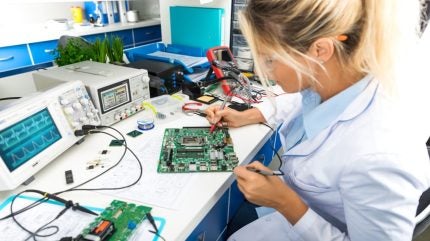
The European Rail Supply Industry Association (UNIFE) has emphasised the need for a €3bn ($3.83bn) investment in a dedicated Rail Research Programme within the upcoming EU Budget.
This investment aims to support the European rail supply industry in maintaining its technological leadership amid rising global competition.
UNIFE director general Enno Wiebe emphasised the potential benefits for European citizens and businesses, stating that advancements in rail technology will transform travel and freight movement across the continent.
The investment aims to establish a successor to Europe’s Rail Joint Undertaking within the next European Research Framework Programme (FP10 or equivalent).
This initiative is part of the European Commission’s forthcoming proposals for the next Multiannual Financial Framework.
The focus will be on developing new technologies while building on existing innovations from the current Europe’s Rail Joint Undertaking, including the European Rail Traffic Management System (ERTMS), Future Railway Mobile Communications System (FRMCS), and Digital Automatic Coupling (DAC).
These advancements are expected to enhance services for both passengers and freight, increase the reliability of the European rail network, and facilitate cross-border travel.
Additionally, the shift from road to rail for freight transport is anticipated to be supported by these technological improvements.
The investment is also seen as a measure to strengthen European rail capabilities, considering ongoing global supply chain challenges.
Wiebe said: “We are ahead – but we need to stay ahead. European rail technology lives up to quality and safety standards, and with the role rail plays as critical infrastructure, we need to ensure leading technologies are developed by European-based companies and implemented worldwide.”
Alongside the research and innovation programme, UNIFE plans to propose a pre-deployment strategy to facilitate the integration of advanced technologies such as FRMCS, DAC, Automatic Train Operation (ATO), and ERTMS across more rail networks in the EU.
These technologies, which have evolved from the previous Shift2Rail initiative, are also referenced in the Draghi Report on EU Competitiveness as essential for enhancing productivity within the EU economy.
The implementation of these technologies is critical for the success of future High-Speed Rail projects connecting European capitals, achieving the Single European Railway Area (SERA), and completing the Trans-European Transport Network (TEN-T).
Furthermore, this investment aligns with Europe’s climate neutrality objectives for 2050, which include a targeted 90% reduction in greenhouse gas emissions from transport.
Recently, the International Union of Railways, Union internationale des chemins de fer (UIC), initiated the FP2-MORANE-2 project, which aims to test the FRMCS technology under real-world conditions.
As the Project Coordinator for FP2-MORANE-2, the UIC leads a consortium that includes UNIFE, along with various railways and suppliers such as ADIF, BaneDanmark, Network Rail, Alstom, CAF, Ericsson, Eviden, Hitachi Rail, KPN, and Telia.



